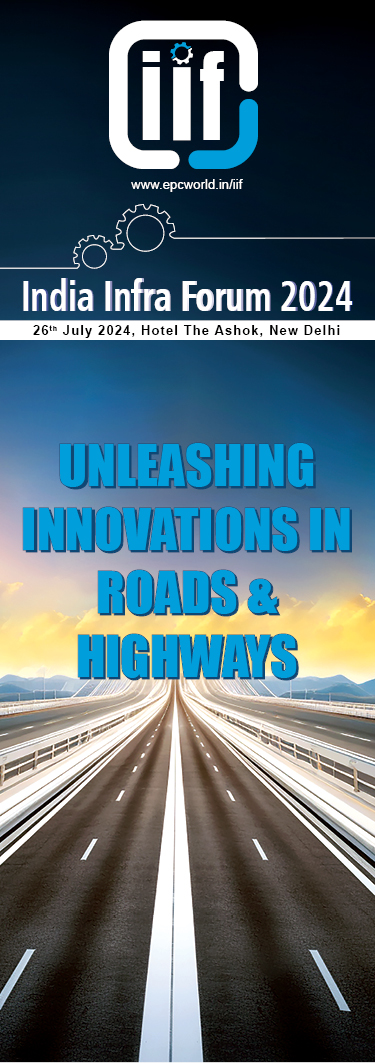Data Centers has grown manifold in the recent past primarily when Covid-19 induced lockdown restricted movement of citizens. This shifted the buying preference to e-commerce sites and work-from-home became a norm. Now with increase demand for data consumption, data center friendly legislations and investments raining in, Data Centers are all set for an exponential growth
The Pandemic struck. It was followed by total lockdown than by partial opening of the lockdown. During the total lockdown and then during the partial opening of the lockdown only shops and commercial establishment providing essential services were allowed to operate by the government. Later on the government allowed the-commerce players to deliver essential services to the citizens. The fear of getting infected with Covid-19 while venturing outside for buying essentials made the citizens to opt for ‘click and buy’. As per the finding of omnichannel inventory management and e-commerce solution provider EasyEcom, total e-commerce sales clocked $52.57 billion in 2020 and $40.44 billion in 2019. It is estimated to clock $67-84 billion in Calendar year 2021. The Pandemic was sinking the economy world over. India’s economy too was badly affected. To get the economy up and running, Corporates and PSUs and almost most of the commercial establishment asked their employees to work from home. These two, buying from e-commerce sites and work from home, led to enormous usage of internet data. According to the department of telecom, which collated reports from service providers, India’s internet consumption rose by 13% since the nationwide lockdown was put in place to check the spread of Covid-19. Indians consumed 308 petabytes (PB) or 308,000 terabytes (TB) of data daily on an average for the week beginning March 22, 2020. This gigantic consumption of data gave rise to quantum leap in requirement of data centers. “Faster adoption of cloud, mobility-based enterprise solutions, new digital channels, government policies, and regulations, are fueling the growth of data centers in India. The Covid-19 pandemic has given a boost to digital platforms, and as a result, we are seeing high demand for data centers,” says Dr. Niranjan Hiranandani, Founder Chairman. Yotta Infrastructure Solutions. According to a research report published by IMARC, a Noida-based international research firm, the global market for Internet Data Centers is expected to grow at a CAGR (compounded annual growth rate) of 13.4 per cent to USD 143.4 billion by 2027 from USD 59.3 billion in 2020.
Steep rise in demand
Adding fuel to quantum leap of data centers in addition to faster adoption of cloud, mobility-based enterprise solutions, new digital channels, government policies, and regulations; is the Singapore government’s decision to halt approvals to build new data centers in 2020 until the end of 2021. There are now about 60 data centers in Singapore. These data centers in Singapore with their servers, equipment, and cooling systems are consuming huge amount of energy which is detrimental to the environment. According to Singapore's Ministry of Trade and Industry (MTI), data centers in Singapore accounted for about seven per cent of total power consumption in the city-state in 2020. To strike a balance between environmental sustainability and supporting business needs, Singapore government has put a brake on approvals to build new data centers till 2021. “With its large domestic consumer base, and supply saturating in cities like Singapore, there is a shift towards India. This could be to India’s advantage, which should be capitalized by appropriate infrastructure support from the Government, says Devi Shankar, President – Industrial, Logistics & Data Centers, ANAROCK Capital.
“While Singapore has long been considered as the icon for commercial activities, connectivity, and access to the APAC region, the country is inherently limited in its ability to cater to the rising global demand for an industry such as data centers. Additionally, post the moratorium imposed by the Singapore government on new data centers due to concerns over the industry's carbon footprint APAC needed a new foundation and, eyes have turned towards India,” says Nikhil Rathi, CEO and Founder, Web Werks. To make the process of setting up data centers lucrative, the government has come up with an ambitious incentive scheme worth up to Rs 12,000 crore is in the works to encourage companies to set up data centers in the country. The government is targeting an investment of Rs 3 lakh crore in the next five years as part of the hyperscale data center scheme and is planning to provide between 3% and 4% of capital investment as incentive to companies, along with real estate support and faster clearances. “The largest demand for data center facilities is arising from global cloud service providers who are the primary driving force behind site selection criteria and ultimate land acquisitions by data center operators. To supplement, India as the second most populous country in the world, along with an increasing rate of mobile adoption, presents an attractive market for such hyperscalers in determining their capacity budgets for India over the next 5 years. For instance, the island city of Mumbai, which is the most popular destination for establishing data centers owing to proximity to cable landing stations, is expected to see planned capacity augmentation from the current 270 MW to additional 800+MW in the future,” says Devi Shankar.
Advantage India
It was well documented in News Papers and other Medias of the standoff between the Indian government and Social Media platforms. The government wants the social media platforms to adhere to the new Information Technology (Intermediary Guidelines and Digital Media Ethics Code) Rules 2021. The government has also made it mandatory for data generated in India to be stored in India, not in the country from where Social Media platforms have their base. “The data center market in India has been on an upward trajectory since the last 2 years.This is mainly triggered by the data localization rules that require data generated in India to be stored locally. We are already seeing instances of clamp down under this regulation, where large financial services institutions and social media companies are facing the wrath of regulators for non-compliance,” says Devi Shankar.
“The data sovereignty laws passed by the Indian government mandate all domestic and international companies to store certain data types within the country’s geographical limits, which is bound to drive the demand for data centers and investments in India,” says Nikhil Rathi. Nikhil Rathi gives a strategic explanation on India advantage over the rest. “India is blessed with an unmatched geographic advantage, which puts it at just the perfect distance from other APAC financial and business hubs such as Singapore, Dubai, and Shanghai, and even European cities such as London. The country also has a coastline stretching over thousands of miles, making it an ideal point for cable landing from the east as well as the west. Being the second most populous country in the world, India is never short on demand. With the Covid-19 chapter adding to the data story it acted as a massive catalyst in terms of both enterprise and individual demands. The country is witnessing a massive emergence of rapidly growing technology-driven companies in almost every business vertical. To manage and analyse this massive data volume, businesses are rapidly switching to cloud-based data storage. The Digital India scheme and the Data Center policy (2020) along with the start-up India, Aatmanirbhar Bharat, and smart city initiatives have together introduced policy intervention and incentive mechanisms that boost the development of data center infrastructures in the country. State governments have announced incentives in land, technology, special single-window clearances under the ease of doing business plans while also attracting Foreign Direct Investments through tax benefits.
Observing this massive demand, global brands are now trying to reach India”.
Challenges to overcome
In the last couple of years data centers have grown by leaps and bounds. As per JLL report Indian data center sector would need US$3.7 billion over the next three years to meet the industry requirement for six million sq ft of development. But most of data centers are concentrated in the top four cities – Mumbai, Delhi, Bengaluru, and Chennai, accounting for 60% of the total data center sites and over 75% of IT load capacities. Mumbai has 40% of the total installed capacity. “In India due to lack of space, Data Centers are clustered in metros near landing stations,” says Nikhil Rathi. In these four cities land prices have increased exponentially. “Land prices in some micro-markets such as Navi Mumbai and Ambattur (in Chennai) have shot up almost 3x in just over 3 years. Secondly, local regulatory approvals can be time consuming and can create a bottleneck in commissioning timelines for data centers. A simplified single window clearance to fast track permitting can go a long way in increasing global confidence,” says Devi Shankar.
Data centers consume lot of power. Excess consumption of power is detrimental to the environment. To get its environment back in shape, Singapore, the data center hub, has put a break on approval for construction of data centers till 2021. As per report data center industry in India consumed 102 MW of power, surpassing even the key markets of Europe and the US. And as the data center landscape continues to evolve, the industry is expected to grow exponentially to reach 1,007 MW by 2023 from its existing capacity of 447 MW. “data center is a power guzzling industry. Although power may not be an immediate concern, very soon we will see a huge uptick in demand for power. This could add strain on certain states to be able to supply uninterrupted power in large capacities. We will require a robust generation and transmission infrastructure to meet this critical requirement. While states are supportive and co-operative in committing to such requirements, the actual implementation will be crucial to sustain industry’s growth,” says Devi Shankar.
Land crunch and exponential rise in prices of land parcel has made data center developers to shift focus from the four metros cites – Mumbai, Delhi, Bengaluru, and Chennai – to Tier I, Tier II and Tier III cities. But, unfortunately the government has not laid proper infrastructure for development of data centers in these cities. “One of the key challenges facing data center operators today is land acquisition. The technical criteria evaluation for data centers are extremely stringent. Some of the factors include proximity to power substation, fiber path, soil and air quality, risks of natural disasters, distance from oil terminals or mass rapid transport systems, distance from residential locations, etc. Satisfying all or most of these criteria, can be extremely challenging in India, given that most existing availability zones are in erstwhile industrial locations that are rapidly becoming mainstream. This makes options limited and land prices sticky, says Devi Shankar.
To reduce power intake and save the environment from further degradation, Data Centers are requires to adhere to sustainability norms which are quite challenging. “Sustainable and eco-friendly are the new challenges; even as India witnesses organic growth amidst the Covid-19 pandemic which enhances the importance of Data Centers. Positive announcements by Officials/ Ministers as also the ambitious legislative support makes for a good beginning; but a closer look of India’s regulatory and internet infrastructure shows that India requires calibrated policy measures to ensure high-growth levels, which will ensure we become a regional data hub,” says Dr. Niranjan Hiranandani.
Project Galore
Yokogawa Electric Corporation and NTT Communications Corporation have signed a business partnership agreement for the joint development and provision of a shared-use operational technology (operational and control technologies) cloud service that will support digital transformation (DX) in the manufacturing industry through the fusion of Yokogawa and NTT Com's respective strengths in OT and IT. NTT plans to invest around two billion dollars on the expansion of data centers, networks, and solar power projects in India. The company has announced expansion of its line of data center facilities with the launch of a new high-density and hyperscale data center in Mumbai. The Hiranandani Group which forayed into the data center space with its subsidiary Yotta Infrastructure Solutions; a managed data center service provider that designs, builds, and operates large-scale data parks in India will be investing around Rs 15,000 crore over the years in Navi Mumbai, Delhi, and Chennai. Web Werks has invested in a land parcel for a 2nd 12.5MW data center in Mumbai in March this year, alongside another 50MW in the offing. “Expanding Delhi NCR has also taken on with 20MW in an enhanced campus of the existing data center,” says Nikhil Rathi. Web Werks has also announced investment plans for up to 20MW data centers in metros like Bangalore, Chennai and 10MW in Hyderabad. As per reports, Reliance Jio Infocomm is planning to build a data center in Uttar Pradesh at an investment of around $950 million.
Princeton Digital Group (PDG) is planning to build its first data center in India which will be on a greenfield campus in Navi Mumbai. The facility will have 48 MW of critical IT capacity across two buildings and is scheduled to be ready in 2022. Singapore's largest private property developer, CapitaLand is setting up first data center investment in Navi Mumbai with an estimated USD 160 million. ST Telemedia Global Data Centers India (STT GDC India), a subsidiary of ST Telemedia has started construction of a new greenfield site STT Noida DC-1 in Noida, Uttar Pradesh. This USD 150 million facilities will offer up to 35MW of critical IT load.
Digital Realty and Brookfield have formed a joint venture to develop data centers in India. So have Iron Mountain and Web Werks. “In February 2021, we got into a joint venture with Iron Mountain, who invested $150 million, to fuel data center growth in India,” says Nikhil Rathi. Adani Group and EdgeConneX have formed a new joint venture AdaniConneX and aim to construct 1GW of data center capacity over the next decade. This new joint venture will build a network of hyperscale data centers across India, starting with the Chennai, Navi Mumbai, Noida, Vizag and Hyderabad markets. Yondr Group, a hyperscale data centers developer, has formed a strategic joint venture partnership with Everstone Group. Operating under the brand name EverYondr, the first facility located in the Mumbai Metropolitan Region, for which land and power have already been acquired, will deliver 30MW by 2023 and 60MW of IT capacity when fully developed.
Sun shines brightly
As per the Anarock-Mace report, in 2020, the Indian data center industry attracted close to US$977 million in private equity and strategic investments since 2008, of which nearly 40%, or approximately US$396 million were infused between the January-September 2020 period alone. “In 2020, India consumed about 13 GB of data per month per internet user. Considering around 750 mn internet users in India in 2020, it works out to an aggregate of 110 exabytes of data consumed last year, which is estimated to more than double by 2025,” says Devi Shankar.
The use of click and buy, social media platforms, movie streaming platforms such as YouTube, Netflix are here to stay. With it data consumption too is set to increase. Recently, the budget friendly JioPhone Next, the smartphone developed by Google and Jio, has been launched which is expected to increase data consumption manifold.
All these bore well for the growth of data center in India.






